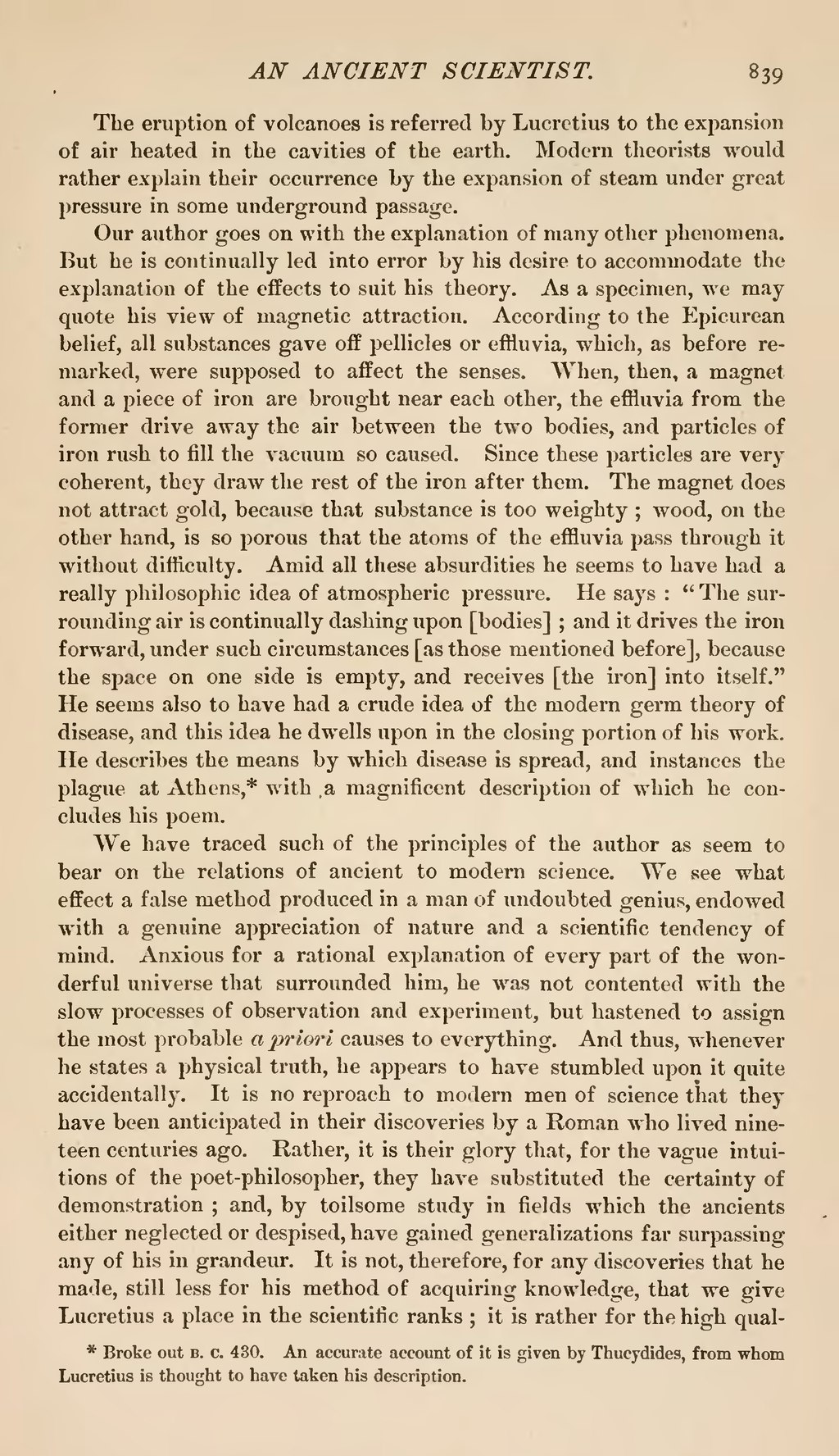The eruption of volcanoes is referred by Lucretius to the expansion of air heated in the cavities of the earth. Modern theorists would rather explain their occurrence by the expansion of steam under great pressure in some underground passage.
Our author goes on with the explanation of many other phenomena. But he is continually led into error by his desire to accommodate the explanation of the effects to suit his theory. As a specimen, we may quote his view of magnetic attraction. According to the Epicurean belief, all substances gave off pellicles or effluvia, which, as before remarked, were supposed to affect the senses. When, then, a magnet and a piece of iron are brought near each other, the effluvia from the former drive away the air between the two bodies, and particles of iron rush to fill the vacuum so caused. Since these particles are very coherent, they draw the rest of the iron after them. The magnet does not attract gold, because that substance is too weighty; wood, on the other hand, is so porous that the atoms of the effluvia pass through it without difficulty. Amid all these absurdities he seems to have had a really philosophic idea of atmospheric pressure. He says: "The surrounding air is continually dashing upon [bodies]; and it drives the iron forward, under such circumstances [as those mentioned before], because the space on one side is empty, and receives [the iron] into itself." He seems also to have had a crude idea of the modern germ theory of disease, and this idea he dwells upon in the closing portion of his work. He describes the means by which disease is spread, and instances the plague at Athens,[1] with a magnificent description of which he concludes his poem.
We have traced such of the principles of the author as seem to bear on the relations of ancient to modern science. We see what effect a false method produced in a man of undoubted genius, endowed with a genuine appreciation of nature and a scientific tendency of mind. Anxious for a rational explanation of every part of the wonderful universe that surrounded him, he was not contented with the slow processes of observation and experiment, but hastened to assign the most probable a priori causes to everything. And thus, whenever he states a physical truth, he appears to have stumbled upon it quite accidentally. It is no reproach to modern men of science that they have been anticipated in their discoveries by a Roman who lived nineteen centuries ago. Rather, it is their glory that, for the vague intuitions of the poet-philosopher, they have substituted the certainty of demonstration; and, by toilsome study in fields which the ancients either neglected or despised, have gained generalizations far surpassing any of his in grandeur. It is not, therefore, for any discoveries that he made, still less for his method of acquiring knowledge, that we give Lucretius a place in the scientific ranks; it is rather for the high qual-
- ↑ Broke out b. c. 430. An accurate account of it is given by Thucydides, from whom Lucretius is thought to have taken his description.

